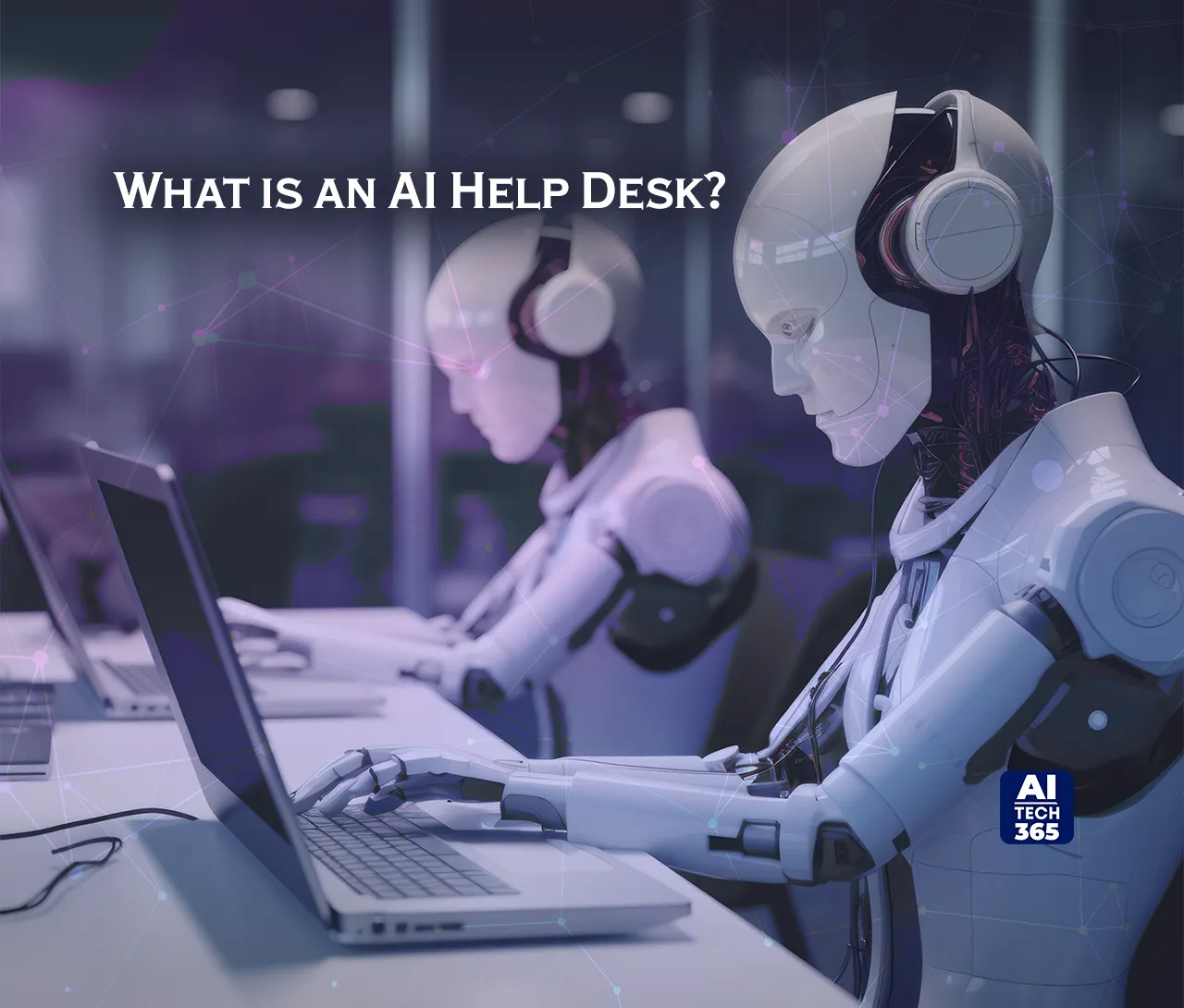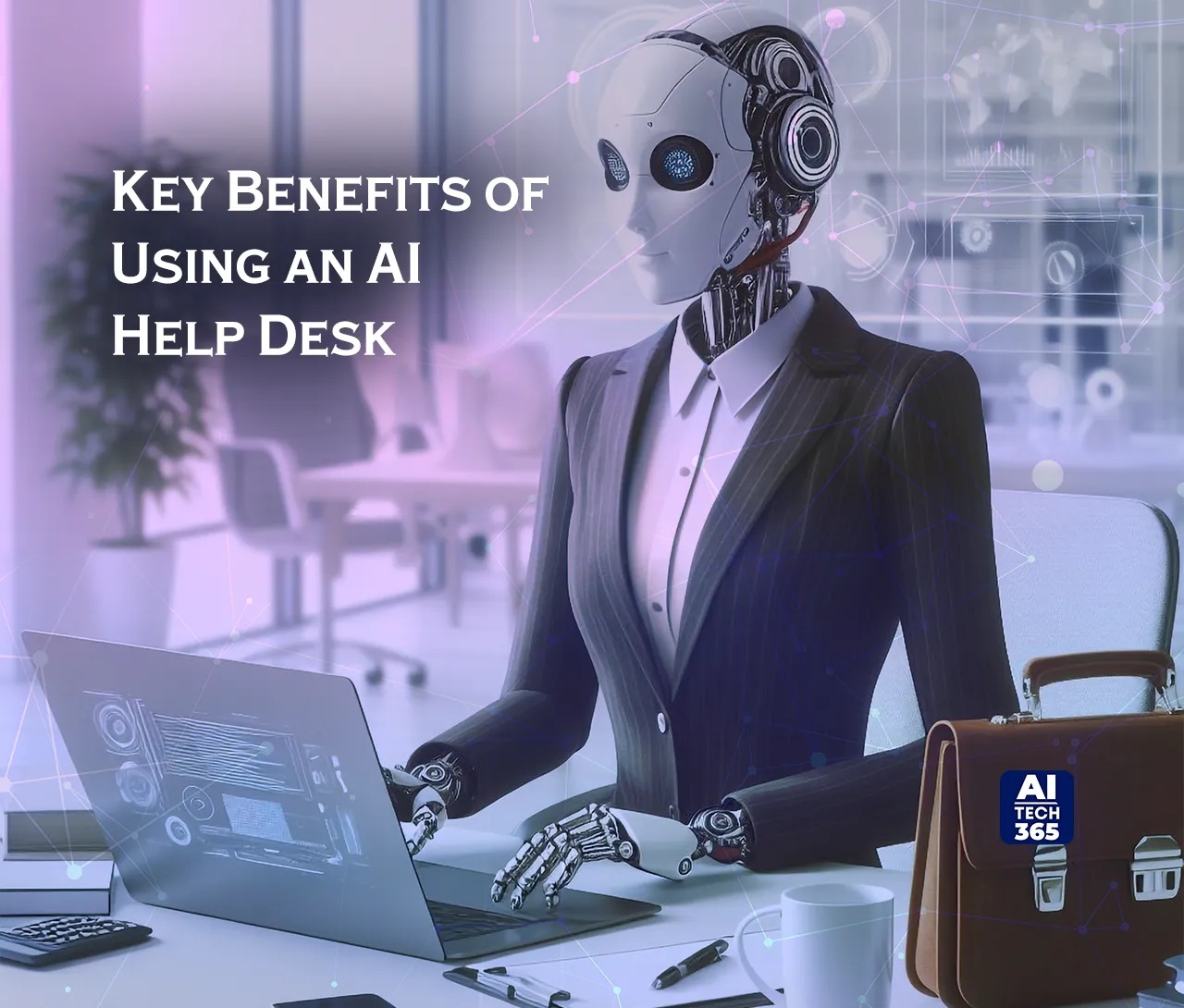In today’s fast-paced digital landscape, businesses face the challenge of delivering efficient and personalized customer support while managing increasing volumes of inquiries. Traditional help desks often struggle to keep up with the demands, leading to long response times, repetitive queries, and frustrated customers. This is where AI help desk comes to the rescue.
AI (artificial intelligence) help desk offers a transformative solution by harnessing the power of artificial intelligence to streamline customer support operations. 80% of clients who have used AI software for customer support reported having a good experience. By leveraging AI-powered tools and technologies, businesses can automate mundane tasks, enhance response accuracy, and deliver a seamless support experience. Let’s learn more about it.
What is an AI Help Desk?
An artificial intelligence help desk is a support system that uses AI capabilities to improve the efficacy and efficiency of customer interaction and support operations. It uses AI-driven tools and technology to automate processes, optimize workflows, and enhance the general support experience for clients and support workers.
Traditional help desks can be transformed into proactive, effective, and extremely responsive support systems using AI help desks. They can interact with current systems and processes to organize support workers, analyze performance metrics, optimize ticket volumes, lead faster resolution, and enhance the overall support experience.
There are many ways to use AI in customer service. These features typically fall into three broad categories.
- Chatbot Solutions: These aim to deflect tickets by resolving queries. They can be rule-based and guide users through predefined processes. Alternatively, they can use conversational AI for dynamic interactions. These virtual assistants mimic human conversations effectively.
- Automation Tools: These automatically categorize incoming customer requests. This helps with ticket routing and analyzing feedback. They use predictive analytics to anticipate customer needs. Sentiment analysis provides insights into customer emotions in real time.
- Agent Assist Tools: These support agents in responding to queries. They use similar technologies as the other two categories. These tools suggest solutions based on historical ticket data like a human agent. They might rephrase responses to be friendlier or more professional.
Also Read: Autonomous AI Agents: Are These Independent Tools The Next Big Thing?
Top 5 AI Help Desk for 2024
Tidio
Tidio offers an AI bot called Lyro, providing the best AI help desk support and live chat support. Lyro understands context, remembers previous interactions, and generates detailed responses. This ensures customers receive accurate information. Tidio also offers the Reply Assistant AI, which helps agents transform drafts into polished replies with one click. Tidio’s omnichannel AI ticketing system is suitable for managing multiple brands under one roof.
Pricing starts at $29 per month, with a free trial and plan available.
Zendesk
Popular omnichannel support desk software Zendesk is well-known for its customizable features. By interpreting the purpose of the user and providing suggested responses, it leverages AI to provide genuine customer care in a personalized manner.
Zendesk’s Answer Bot leverages machine learning to provide instant, precise answers from knowledge bases, forums, and other resources. It also offers advanced AI capabilities for automation and generative AI powered by OpenAI.
Pricing starts at $40 per user per month, with a free trial available.
Qualaroo
Qualaroo’s main offering is its robust sentiment analysis feature, powered by IBM Watson. It sorts through large amounts of data to identify customer sentiment and emotions in text.
This allows businesses to trigger appropriate responses based on customer emotions, such as creating tasks for follow-up with angry customers. Qualaroo’s AI capabilities extend to predictive analytics, offering insights into customer experiences and satisfaction.
Zoho Desk
Zoho Desk offers an AI-powered bot called Zia, which can be trained on specific tasks relevant to business operations. This makes Zoho Desk versatile and aligned with unique customer service needs. Zoho Desk also provides five pricing plans to cater to different requirements.
Aisera
Aisera’s AI Service Desk features natural language understanding, context management, and exception handling. It enables human-like conversations with users and supports interactions in over 100 languages.
Aisera’s Universal Bot employs industry and domain-specific language models (LLMs) to streamline the service desk and offer a unified interface for employees to ask questions. Aisera aims to elevate the employee experience and facilitate seamless context-switching during conversations.
Key Benefits of Using an AI Help Desk
Some of the benefits of using AI agents for service desk tasks include:
- Improved Response Times: AI assistants can provide lightning-fast responses themselves or help your agents work faster.
- 24/7 Availability: An AI help desk often includes an AI chatbot with around-the-clock coverage. AI systems never take breaks or vacations, ensuring 24/7 customer assistance.
- Process Automation: AI tools excel at automating routine and repetitive tasks. They can summarize conversations, suggest saved replies, convert internal documentation into customer-facing articles, and process common queries or order changes.
- Writing Assistance: AI tools can adjust the tone of your responses to be friendly or formal. They can lengthen or shorten replies, translate text into other languages, and help your team write better emails in less time.
- Scalability: AI-powered tools handle a high volume of tasks simultaneously. They scale up without increasing operational costs linearly, making them ideal for companies of different sizes and growth stages.
- Data-Driven Insights: Natural language processing advances allow AI to quickly evaluate large quantities of text. This provides information on prevalent problems, customer behavior, sentiment in the feedback, and areas that could use improvement.
Final Takeaway
If used properly, AI help desks can bring a great deal of extra value to both your team and your company.
You can increase output, raise client happiness, and cut down on time spent on repetitive chores.
That methodical and deliberate execution is the crucial element. As long as AI solutions complement your team’s skills and connect with your current procedures, they can become important tools that help your team succeed and your business thrive.


